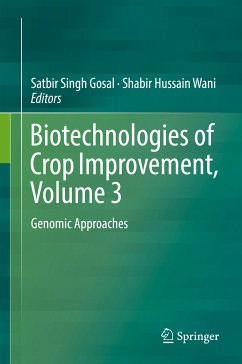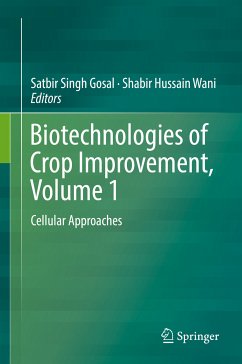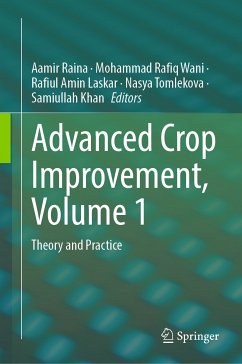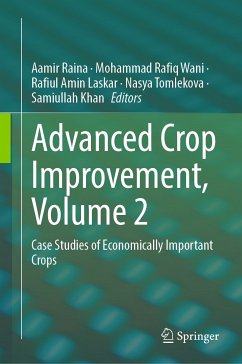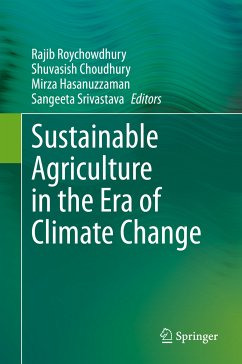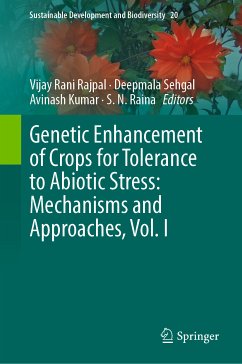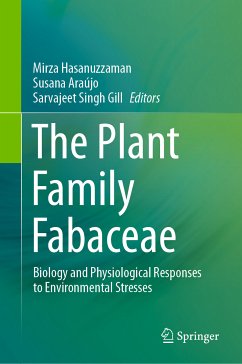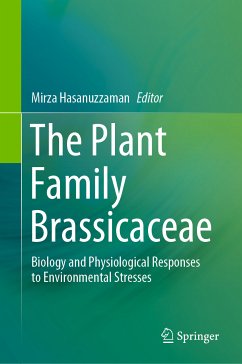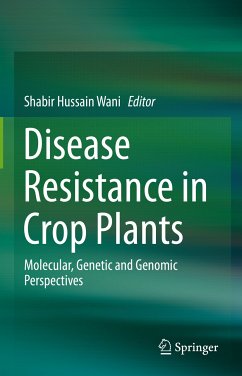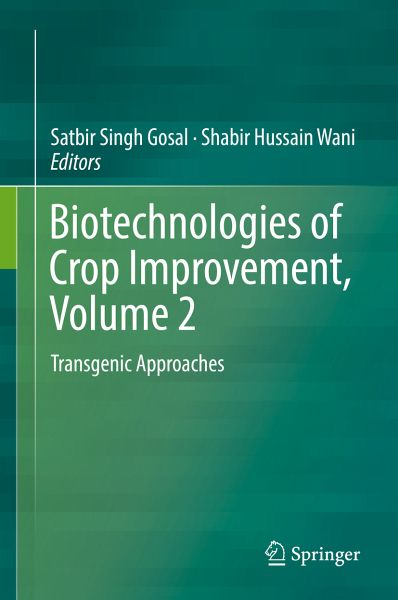
eBook, PDF
Biotechnologies of Crop Improvement, Volume 2 (eBook, PDF)
Transgenic Approaches
Redaktion: Gosal, Satbir Singh; Wani, Shabir Hussain

PAYBACK Punkte
52 °P sammeln!





Biotechnologies of Crop Improvement, Volume 2 (eBook, PDF)
Dieser Download kann aus rechtlichen Gründen nur mit Rechnungsadresse in A, B, BG, CY, CZ, D, DK, EW, E, FIN, F, GR, HR, H, IRL, I, LT, L, LR, M, NL, PL, P, R, S, SLO, SK ausgeliefert werden.
Dr. Satbir Singh Gosal possesses B.Sc. (Med.) from P U Chandigarh, India and M.Sc. & Ph. D. (Plant breeding) from Punjab Agricultural University, Ludhiana, India. He was awarded Fellowships by The Royal Society London and The Rockefeller Foundation (USA) for his Post Doctoral Research at the University of Nottingham, England and John Innes Centre Norwich, England. Dr Gosal has served Punjab Agricultural University in various capacities such as Professor Biotechnology, Director School of Agricultural Biotechnology, Additional Director Research and Director of Research. He has also served FAO/IAEA, Vienna, Austria and took tissue culture expert mission to Iraq during 1997. Dr Gosal has rigorous training on 'Biosafety of GM crops' from Dan Forth Centre for Plant Science Research, St. Louis; APHIS, EPA (USDA), USTDA, Washington DC, USA. He has been an Honorary Member of the Board of Assessors, Australian Research Council, Canberra, President Punjab Academy of Sciences, elected member (Fellow) of Plant Tissue Culture Association (India), Fellow of Indian Society of Genetics and Plant Breeding. He is a recipient of Distinction Award by Society for the Promotion of Plant Science Research, Jaipur, India (2009), Fellow of Punjab Academy of Sciences, Advisory member of several universities/institutes in the area of biotechnology. He served as a member of Review Committee on Genetic Manipulation (RCGM) for 3 years at Department of Biotechnology (DBT), Government of India, New Delhi, and is a member of panel of experts in area of Biotechnology for National Fund for Strategic Research of Indian Council of Agricultural Research, New Delhi. He has participated in more than 125 national/international conferences/meetings held in India, England, Scotland, Yugoslavia, Philippines, Indonesia, Thailand, The Netherlands, Malaysia, Singapore, Austria, Iraq, P R China, Australia, Mexico, Germany and USA. He has guided more than 75 (M.Sc. & Ph.D.) students for thesesresearch on various aspects of plant tissue culture and plant transformation. He executed more than 20 externally funded research projects funded by various national and international organizations such as Punjab State Government, ICAR, DBT, DAC NATP, FAO/IAEA, and The Rockefeller Foundation, USA. He has more than 200 research papers in refereed journals of high repute, 135 research papers in conference proceedings, several T.V./Radio talks, and 30 book chapters. He has co authored 5 Laboratory Manuals, one Text Book and 2 Edited Books. Dr. Shabir Hussain Wani is an Assistant Professor cum Scientist, Plant Breeding and Genetics, at the Mountain Research Centre for Field Crops, Khudwani Sher-e-Kashmir University of Agricultural Sciences and Technology of Kashmir, Srinagar, Jammu and Kashmir, India since May 2013 till date. He received his B.Sc. in Agriculture from BhimRao Agricultural University Agra, India, M.Sc. and Ph.D. in Genetics and Plant Breeding from Central Agricultural University, Manipur, India. His Ph.D. research fetched the first prize in North zone at National level competition in India. After obtaining his Ph.D., he worked as Research Associate in the Biotechnology Laboratory, ICAR-Central Institute of Temperate Horticulture, Rangreth Srinagar, India for two years, up to October 2011. In November 2011 he joined the Krishi Vigyan Kendra (Farm Science Centre) as Programme Coordinator (i/c) at Senapati Manipur, India. He teaches courses related to plant breeding, seed science and technology, and stress breeding. He has published more than 100 scientific papers/chapters in peer reviewed journals, and books of international and national repute. He has served as Review Editor of Frontiers in Plant Sciences, Switzerland from 2015-2017. He is an editor of SKUAST Journal of Research, and LS: An International Journal of Life Sciences. He has also edited ten books on current topics in crop Improvement published by reputed publishers including CRC press, Taylor and Francis Group, USA and Springer. He is a Fellow of the Linnean Society of London and Society for Plant Research, India. He received various awards including Young Scientist Award (Agriculture) 2015, Young Scientist Award 2016, Young Achiever award 2016 by various prestigious scientific societies. He has also worked as visiting Scientist in department of Plant Soil and Microbial Sciences, Michigan State University, USA for the year 2016-17 under the Raman Post Doctoral Research Fellowship programme sponsored by University Grants Commission, Govt. of India, New Delhi. He is a member of the Crop Science Society of America.¿
Produktdetails
- Verlag: Springer Nature Switzerland
- Seitenzahl: 485
- Erscheinungstermin: 9. Juli 2018
- Englisch
- ISBN-13: 9783319906508
- Artikelnr.: 56792317
Für dieses Produkt wurde noch keine Bewertung abgegeben. Wir würden uns sehr freuen, wenn du die erste Bewertung schreibst!
Eine Bewertung schreiben
Eine Bewertung schreiben
Andere Kunden interessierten sich für


